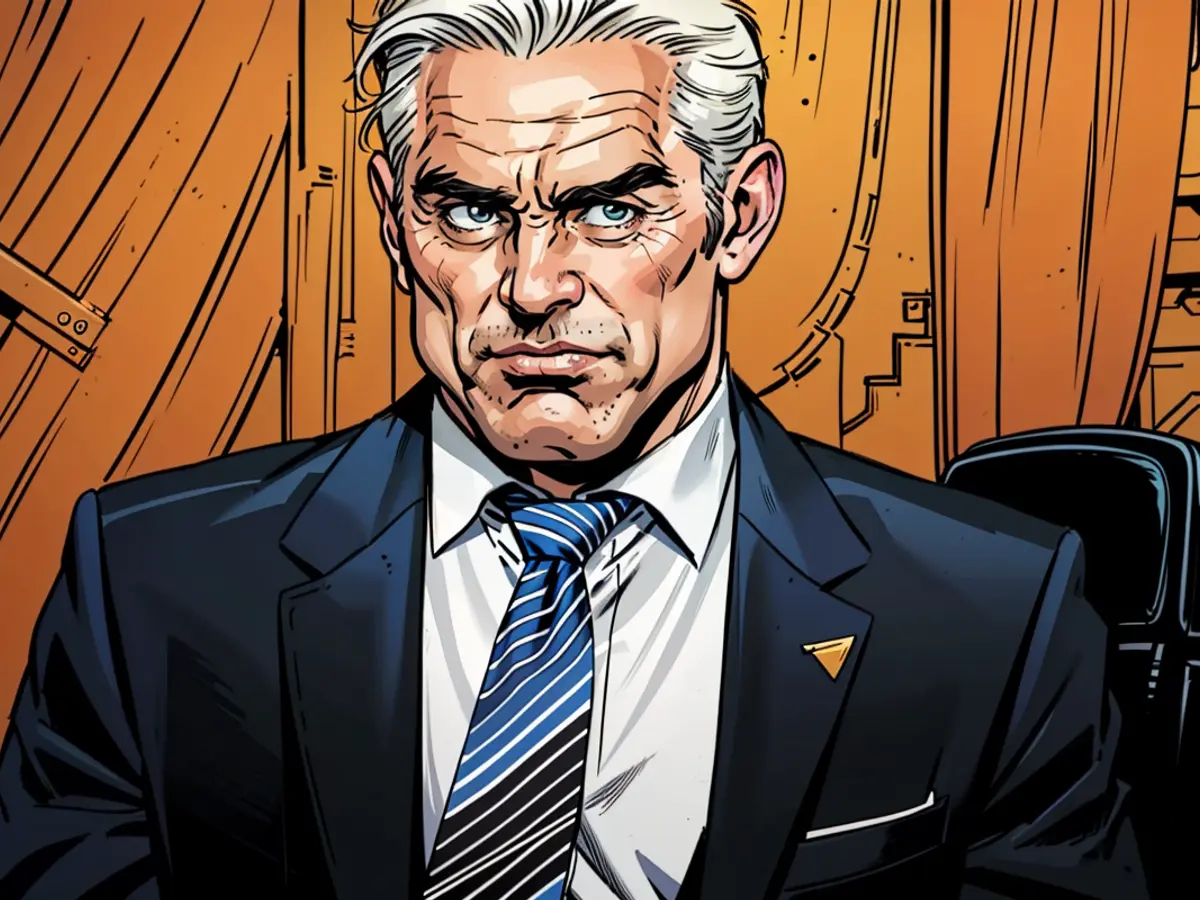Processes - Wirecard Process: Attack, Apology and Open Questions
Disappointed - this is how the spokesperson for the prosecution summarizes the third defendant's statement in the Wirecard trial. For 137 trial days, the former head of accounting E. remained silent. Now he speaks up - and extensively so. Two days are even scheduled for the reading of his statement, which is supposed to consist of around 190 pages. However, he does not bring significantly new information on the first day.
E. began his statements with an apology. He admitted making mistakes, which he regretted. However, his statements were not a confession. E. denied being part of a criminal gang. He had not enriched himself and had always wanted what was best for the company. Furthermore, he assumed responsibility and accountability in many places. And finally, he emphasized that he was not an accountant, as he had originally studied landscape architecture and had only later continued his education economically.
"Hate" and "eagerness to incriminate"
However, E. attacked the co-defendant and prosecution witness Oliver Bellenhaus sharply. The manager, who largely admitted the charges and whose statement incriminates E. and the former Wirecard CEO Markus Braun, is "good at lying and cheating," E. said in the course of his self-written statement. He attributed the "hate" and "eagerness to incriminate" of his co-defendant to the fact that Bellenhaus had envied his title and salary. He had also been annoyed by Bellenhaus' questions about evidence - perhaps also because Bellenhaus had to falsify them. In general, he had the impression that the manager was a chaos. In addition, they had often clashed.
He described his own role as that of an overworked manager. "I had many topics on my plate and came across as a juggler who was so busy that no ball fell down," E. described his activity. At the same time, he had no time to deal with the individual balls in more detail. Today, he realizes that he should have held back and done so.
He makes bad technology and a lack of employees responsible for the overload. "It was always the case that two people wanted something from me at the same time," he described his typical workday. In particular, during the annual financial statements, there was a lot of time pressure. "One doesn't have the time and the strength to question everything. That's what the department is for," he said. One had to rely on their information. Often, their answers were only passed on to the financial auditors. "If they were satisfied, we were too."
He spoke indirectly about the third-party business, which played a central role in the collapse of Wirecard, only indirectly. He had already limited his expectations at the beginning of his statement. This was not the focus of his work, he had only received many information about it from hearsay. He could only tell "stories from years of desk work" at Wirecard.
However, he emphasized that he had delegated tasks related to the third-party business to employees. This is his argument against the allegation that he formed a gang. If that had been the case, he would have tried to keep employees away from the topic.
Braun's defense was pleased with the statement. This confirmed their client's statements. One could see that two defendants told the truth and one did not, they said, referring to Braun and E. respectively, as well as Bellenhaus.
The payment service provider Wirecard filed for insolvency in June 2020 as 1.9 billion Euro could no longer be found on trust accounts. The damage runs into the billions. The indictment accuses the three defendants, as well as the fugitive former sales chief Jan Marsalek and other accomplices, of having generated billions in sales figures falsely to keep the deficit Dax company afloat. E. has so far remained silent in the since December 2022 ongoing trial. Braun denies all charges, the regular witness Bellenhaus testifies and accuses the two co-defendants.
Who was the perpetrator, who was the victim?
Ex-CEO Braun has repeatedly stated that the business of the company - and the billions in sales - were not fabricated, but real. According to his account, Marsalek, Bellenhaus, and other accomplices were the real culprits who stole billions from the company and redirected them to their own accounts.
The court has already scheduled trial days up until just before Christmas. A very important witness still needs to be heard: Insolvency administrator Michael Jaffe. In his investigations so far, he has not found any trace of the missing billions, of whose existence Braun is convinced.
- The Public Prosecutor's Office in Bavaria is overseeing the ongoing trial of three defendants, including Markus Braun, former CEO of Wirecard, for alleged financial misconduct.
- During the trial, a former bookkeeper from Wirecard spoke for the first time, offering a lengthy statement of over 190 pages over two days.
- The statement did not provide significant new information on the first day, but the bookkeeper apologized for his mistakes and denied being part of any criminal gang.
- The bookkeeper, originally a landscape architect, attacked Oliver Bellenhaus, a prosecution witness and former manager at Wirecard, calling him a liar and accusing him of envy and a desire to incriminate.
- In Munich, the court process continues with the defense presenting arguments and witnesses, including the third-party business being indirectly discussed as a potential factor in Wirecard's collapse in Germany.
- The ex-CEO Braun maintains his innocence, accusing former sales chief Jan Marsalek and others, including prosecution witness Bellenhaus, of stealing billions from the company, a claim that remains to be proven in the German court.








